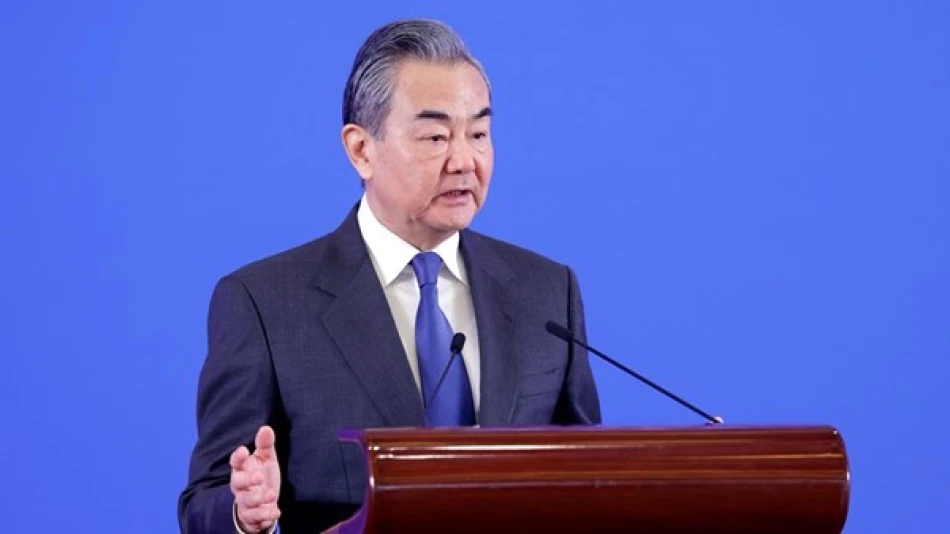
China Affirms Commitment to Peace, Rejects Wartime Ambitions
China Pushes Back Against US Oil Sanctions as Washington Tightens Screws on Russian Energy Trade
Chinese Foreign Minister Wang Yi delivered a pointed rebuke to escalating US sanctions pressure on Saturday, declaring that China "does not participate in wars" amid Washington's intensified campaign to isolate Russian oil buyers through tariff threats. The statement comes as the Biden administration expands its economic warfare beyond traditional allies, targeting major economies like China and India that continue purchasing discounted Russian crude.
Beijing's Defiant Stance Signals Deepening US-China Rift
Speaking at a joint press conference with his Slovenian counterpart in Ljubljana, Wang Yi emphasized that "war cannot solve problems and sanctions only complicate them further," according to a Chinese Foreign Ministry statement. The remarks represent Beijing's most direct pushback against US efforts to weaponize trade policy in service of Ukraine war objectives.
This diplomatic friction highlights a fundamental divergence in how major powers view economic coercion. While Washington sees sanctions as legitimate tools of statecraft, Beijing increasingly frames them as destabilizing unilateral measures that undermine global trade stability.
US Sanctions Strategy Expands Beyond Western Allies
The Biden administration's decision to impose tariffs on India for purchasing Russian oil shipments marks a significant escalation in sanctions enforcement. Unlike previous rounds that primarily targeted Western allies to maintain unity, Washington now appears willing to economically punish major non-aligned economies that refuse to comply with its Russia isolation strategy.
This shift reflects both desperation and strategic calculation. With European Russian oil imports largely eliminated, the remaining buyers—primarily China, India, and Turkey—represent the final pillars supporting Moscow's energy revenues. Cutting these lifelines could significantly impact Russia's war financing capabilities.
Market Implications and Energy Security Concerns
For global energy markets, this sanctions expansion introduces new volatility risks. China and India collectively account for roughly 35% of global oil consumption, making their purchasing decisions systemically important. If these buyers reduce Russian crude imports under US pressure, alternative suppliers would need to fill gaps potentially exceeding 2 million barrels per day.
However, both countries have compelling economic incentives to maintain Russian energy ties. Chinese refiners and Indian processors have secured Russian crude at discounts of $15-20 per barrel below benchmark prices, providing substantial cost advantages in competitive downstream markets.
Precedent Setting for Future Economic Conflicts
The US approach of sanctioning major economies for energy purchases establishes concerning precedents for global trade governance. Unlike targeted sanctions on specific entities, broad tariff threats against entire countries for commodity purchases blur traditional distinctions between economic and military conflict.
This strategy risks accelerating the formation of alternative trading blocs designed to circumvent dollar-denominated systems. China and Russia have already expanded yuan-ruble settlement mechanisms, while India explores rupee-based payment systems for energy imports.
The ultimate effectiveness of this sanctions expansion will likely determine whether economic coercion becomes a standard tool in great power competition or whether targeted countries successfully develop workarounds that diminish US financial leverage over time.
Most Viewed News

 Layla Al Mansoori
Layla Al Mansoori






